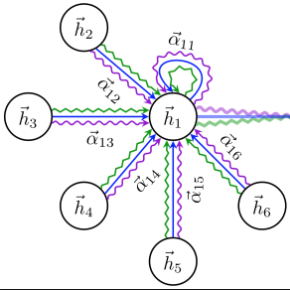Existing keyword spotting (KWS) systems primarily rely on predefined keyword phrases. However, the ability to recognize customized keywords is crucial for tailoring interactions with intelligent devices. In this paper, we present a novel Query-by-Example (QbyE) KWS system that employs spectral-temporal graph attentive pooling and multi-task learning. This framework aims to effectively learn speaker-invariant and linguistic-informative embeddings for QbyE KWS tasks. Within this framework, we investigate three distinct network architectures for encoder modeling: LiCoNet, Conformer and ECAPA_TDNN. The experimental results on a substantial internal dataset of $629$ speakers have demonstrated the effectiveness of the proposed QbyE framework in maximizing the potential of simpler models such as LiCoNet. Particularly, LiCoNet, which is 13x more efficient, achieves comparable performance to the computationally intensive Conformer model (1.98% vs. 1.63\% FRR at 0.3 FAs/Hr).
翻译:暂无翻译



